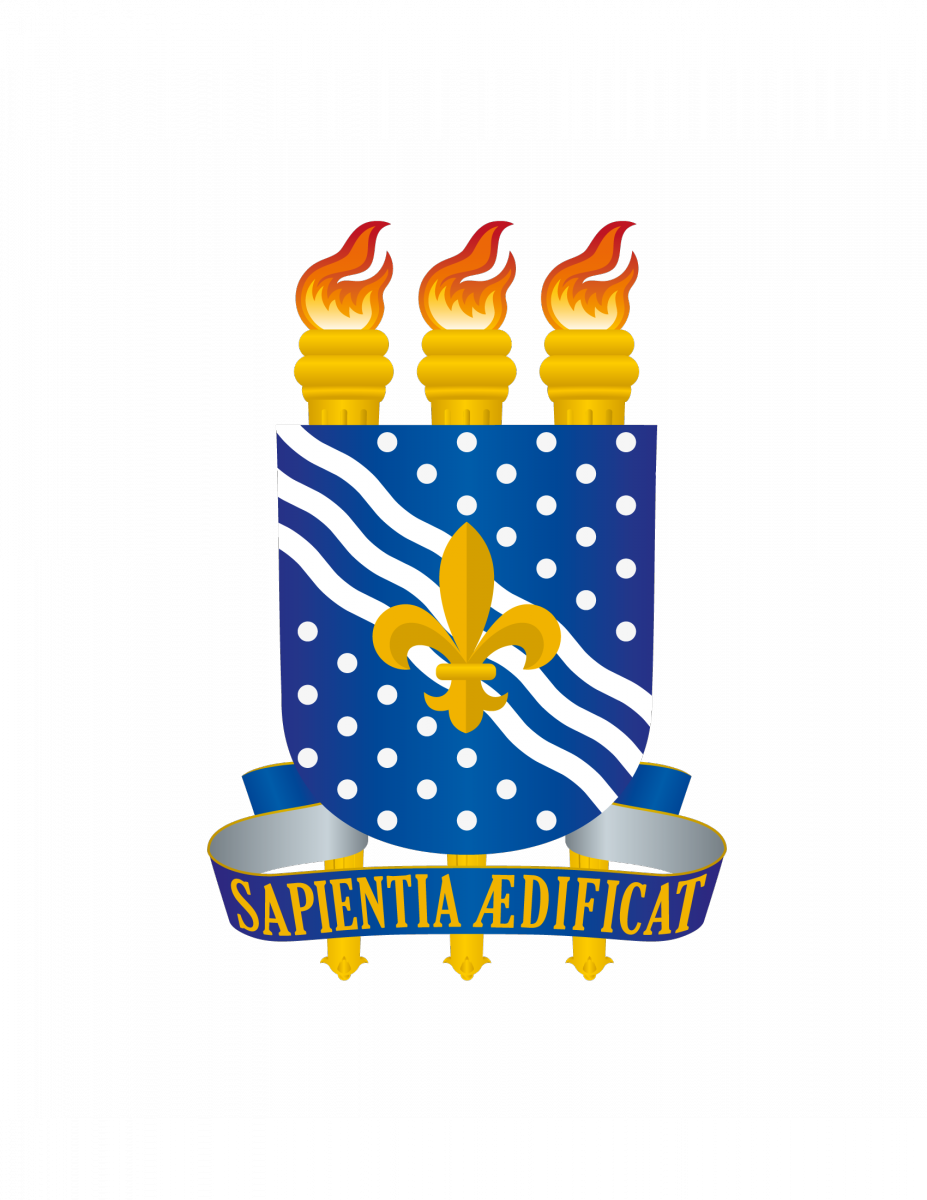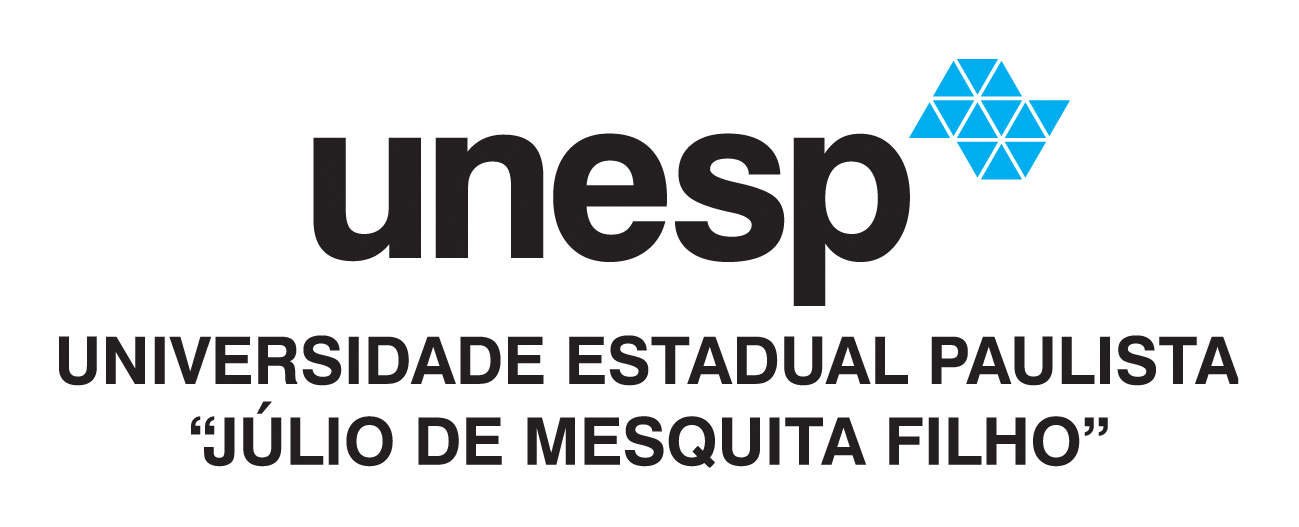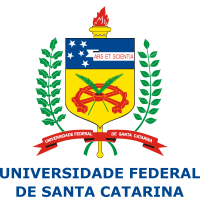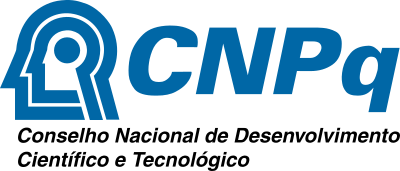Information, Data and Technology
Guilherme Ataíde Dias
Federal University of Paraíba (UFPB) | guilhermeataide@ccsa.ufpb.br | https://orcid.org/0000-0001-6576-0017 | https://lattes.cnpq.br/9553707435669429
Undergraduate in Computer Science from the Federal University of Paraíba UFPB Campus II (1990), Bachelor in Law by the University Center of João Pessoa UNIPE (2010), Master in Organization & Management by Central Connecticut State University? CCSU (1995), PhD in Information Science (Communication Sciences) at the University of São Paulo? USP (2003) and Post-Doctor by UNESP (2011). He is currently Associate Professor III at the Federal University of Paraíba, where he holds a degree in Information Science. He is involved with Post-Graduation through the Post-Graduate Program in Information Science and Postgraduate Program in Administration, both of UFPB. Has research interest in the following themes: Knowledge Representation; Information Architecture; Information security; Information and Communication Technologies; Health Information; Social networks; Free software; Law, Ethics and Intellectual Property in Cyberspace; Scientific Data Management; Legal Information; He is currently Research Productivity Scholar (PQ) at CNPq.
Moisés Lima Dutra
Federal University of Santa Catarina (UFSC) | moises.dutra@ufsc.br | https://orcid.org/0000-0003-1000-5553 | https://lattes.cnpq.br/1973469817655034
Professor, Federal University of Santa Catarina, Department of Information Science. PhD in Computing from the University of Lyon 1, France (2009). Master in Electrical Engineering, subarea Automação e Sistemas (2005) and Bachelor in Computing (1998) from the Federal University of Santa Catarina. His current lines of research are related to Applied Artificial Intelligence (Machine Learning, Deep Learning, Semantic Web, Linked Data) and Data Science (Big Data, IoT). It is linked to the research group ITI-RG (Intelligence, Technology and Information - Research Group).
Fábio Mosso Moreira
São Paulo State University (UNESP) | fabio.moreira@unesp.br | https://orcid.org/0000-0002-9582-4218 | https://lattes.cnpq.br/1614493890723021
Undergraduate degree in Business Administration from the Faculty of Sciences and Engineering (UNESP / Tupã). Master degree in Information Science - (UNESP / Marília). PhD student in the Graduate Program in Information Science (UNESP / Marília). Member of the Research Group - GPNTI (UNESP / Marília) and GPTAD (UNESP / Tupã). Collaborator of the Project Digital Skills for Family Farming (CoDAF). Content editor of the Electronic Journal Digital Skills for Family Farming (RECoDAF). Professional Technical Skill in Informatics from ETEC Massuyuki Kawano - Centro Paula Souza de Tupã. Professional experience in the ERP Information Systems for Logistics Operations. Works with research in Information Science, studying the use of digital resources for access to government data of Public Policies in the context of the small farmer.
Fernando de Assis Rodrigues
Federal University of Pará (UFPA) | fernando@rodrigues.pro.br | https://orcid.org/0000-0001-9634-1202 | https://lattes.cnpq.br/5556499513805582
Professor at Federal University of Pará. Ph.D. and M.S. in Information Science, Post-bachelor in Internet Systems and Bachelor of Science in Information Systems. Most of his experience is based on works developed as a Full Stack Developer and Database administrator, especially with Python, Java and PHP programming languages, as well as MySQL, MariaDB, SQLite3 and PostgreSQL databases. Also, he lectured classes related to the context of Computer Science to undergraduate and graduate students at UNESP. Currently, He workd as a postdoc researcher at UNESP labs, working in data studies.
Ricardo César Gonçalves Sant'Ana
São Paulo State University (UNESP) | ricardo.santana@unesp.br | https://orcid.org/0000-0003-1387-4519 | https://lattes.cnpq.br/1022660730972320
Associate Professor at the Paulista State University - UNESP, Faculty of Sciences and Engineering - FCE, Campus de Tupã, on an exclusive dedication, where he is Chairman of the Monitoring and Evaluation Committee of the Graduate Courses - CAACG, Local Coordinator of the Center for Studies and Pedagogical Practices - CENEPP and Local Ombudsman. Professor of the Post-Graduate Program in Information Science of the Paulista State University, Marília Campus. Graduated in Mathematics and Pedagogy, Master in Information Science (2002), Doctorate in Information Science (2008) and Freelance in Management Information Systems by UNESP (2017). He has specialized in Object Orientation (1996) and Management of Information Systems (1998). Ad hoc advisor of periodicals and development agencies. Member of the Research Group - New Technologies in Information GPNTI-UNESP. Has experience in the area of ??Computer Science, currently conducts research focused on: information science and information technology, investigating issues related to the Data Life Cycle, Transparency and Information Flow in Productive Chains. He worked as a professor at Faccat Faculdade de Ciências Contábeis e Administração de Tupã, where he coordinated a course of Administration with Qualification in Systems Analysis for ten years and the course of Licenciatura in Computing. He worked in the private sector as a consultant, integrator and researcher of new information technologies from 1988 to 2004.
Organizators
Guilherme Ataíde Dias
Federal University of Paraíba (UFPB) | guilhermeataide@ccsa.ufpb.br | https://orcid.org/0000-0001-6576-0017 | https://lattes.cnpq.br/9553707435669429
Undergraduate in Computer Science from the Federal University of Paraíba UFPB Campus II (1990), Bachelor in Law by the University Center of João Pessoa UNIPE (2010), Master in Organization & Management by Central Connecticut State University? CCSU (1995), PhD in Information Science (Communication Sciences) at the University of São Paulo? USP (2003) and Post-Doctor by UNESP (2011). He is currently Associate Professor III at the Federal University of Paraíba, where he holds a degree in Information Science. He is involved with Post-Graduation through the Post-Graduate Program in Information Science and Postgraduate Program in Administration, both of UFPB. Has research interest in the following themes: Knowledge Representation; Information Architecture; Information security; Information and Communication Technologies; Health Information; Social networks; Free software; Law, Ethics and Intellectual Property in Cyberspace; Scientific Data Management; Legal Information; He is currently Research Productivity Scholar (PQ) at CNPq.
Moisés Lima Dutra
Federal University of Santa Catarina (UFSC) | moises.dutra@ufsc.br | https://orcid.org/0000-0003-1000-5553 | https://lattes.cnpq.br/1973469817655034
Professor, Federal University of Santa Catarina, Department of Information Science. PhD in Computing from the University of Lyon 1, France (2009). Master in Electrical Engineering, subarea Automação e Sistemas (2005) and Bachelor in Computing (1998) from the Federal University of Santa Catarina. His current lines of research are related to Applied Artificial Intelligence (Machine Learning, Deep Learning, Semantic Web, Linked Data) and Data Science (Big Data, IoT). It is linked to the research group ITI-RG (Intelligence, Technology and Information - Research Group).
Fábio Mosso Moreira
São Paulo State University (UNESP) | fabio.moreira@unesp.br | https://orcid.org/0000-0002-9582-4218 | https://lattes.cnpq.br/1614493890723021
Undergraduate degree in Business Administration from the Faculty of Sciences and Engineering (UNESP / Tupã). Master degree in Information Science - (UNESP / Marília). PhD student in the Graduate Program in Information Science (UNESP / Marília). Member of the Research Group - GPNTI (UNESP / Marília) and GPTAD (UNESP / Tupã). Collaborator of the Project Digital Skills for Family Farming (CoDAF). Content editor of the Electronic Journal Digital Skills for Family Farming (RECoDAF). Professional Technical Skill in Informatics from ETEC Massuyuki Kawano - Centro Paula Souza de Tupã. Professional experience in the ERP Information Systems for Logistics Operations. Works with research in Information Science, studying the use of digital resources for access to government data of Public Policies in the context of the small farmer.
Fernando de Assis Rodrigues
Federal University of Pará (UFPA) | fernando@rodrigues.pro.br | https://orcid.org/0000-0001-9634-1202 | https://lattes.cnpq.br/5556499513805582
Professor at Federal University of Pará. Ph.D. and M.S. in Information Science, Post-bachelor in Internet Systems and Bachelor of Science in Information Systems. Most of his experience is based on works developed as a Full Stack Developer and Database administrator, especially with Python, Java and PHP programming languages, as well as MySQL, MariaDB, SQLite3 and PostgreSQL databases. Also, he lectured classes related to the context of Computer Science to undergraduate and graduate students at UNESP. Currently, He workd as a postdoc researcher at UNESP labs, working in data studies.
Ricardo César Gonçalves Sant'Ana
São Paulo State University (UNESP) | ricardo.santana@unesp.br | https://orcid.org/0000-0003-1387-4519 | https://lattes.cnpq.br/1022660730972320
Associate Professor at the Paulista State University - UNESP, Faculty of Sciences and Engineering - FCE, Campus de Tupã, on an exclusive dedication, where he is Chairman of the Monitoring and Evaluation Committee of the Graduate Courses - CAACG, Local Coordinator of the Center for Studies and Pedagogical Practices - CENEPP and Local Ombudsman. Professor of the Post-Graduate Program in Information Science of the Paulista State University, Marília Campus. Graduated in Mathematics and Pedagogy, Master in Information Science (2002), Doctorate in Information Science (2008) and Freelance in Management Information Systems by UNESP (2017). He has specialized in Object Orientation (1996) and Management of Information Systems (1998). Ad hoc advisor of periodicals and development agencies. Member of the Research Group - New Technologies in Information GPNTI-UNESP. Has experience in the area of ??Computer Science, currently conducts research focused on: information science and information technology, investigating issues related to the Data Life Cycle, Transparency and Information Flow in Productive Chains. He worked as a professor at Faccat Faculdade de Ciências Contábeis e Administração de Tupã, where he coordinated a course of Administration with Qualification in Systems Analysis for ten years and the course of Licenciatura in Computing. He worked in the private sector as a consultant, integrator and researcher of new information technologies from 1988 to 2004.
Analysis of the relationship between profile and academic performance of students enrolled in the programming introduction course using classification algorithms
Pages: 501 - 512
Authors
Roberto Silva de Oliveira Júnior
Federal University of Paraíba (UFPB) | roberto.silva@dce.ufpb.br | https://lattes.cnpq.br/5095958238014357
Has experience in the area of Computer Science.
Douglas Valentim de Almeida Cardins
Federal University of Paraíba (UFPB) | douglas.valentim@dce.ufpb.br | https://lattes.cnpq.br/0509156062041263
Has experience in the area of Computer Science. With some experience in programming in Java and Python.
Wenddell Juler Pereira de Lima
Federal University of Paraíba (UFPB) | wenddell.juler@dce.ufpb.br | https://lattes.cnpq.br/2195755521034980
Graduation in Computer Science - Post graduated in Software Engineering with emphasis on tests and qualities of software.
Thereza Patrícia Pereira Padilha
Federal University of Paraíba (UFPB) | thereza@dce.ufpb.br | https://lattes.cnpq.br/2084409307725504
Graduation in Technology in Data Processing from the University of Tocantins (1996), a Master's Degree in Computer Science and Computational Mathematics from the University of São Paulo (1999) and a PhD in Computer Science from the Federal University of Santa Catarina (2005). She is currently Associate Professor I of the Department of Exact Sciences, Campus IV, Federal University of Paraíba. He has experience in Computer Science, with emphasis on Artificial Intelligence, working mainly on the following topics: machine learning, knowledge acquisition, Bayesian networks and collaborative learning. He also acts as an institutional evaluator and courses of the National Institute of Studies and Educational Research (INEP).
Vanessa Farias Dantas
Federal University of Paraíba (UFPB) | vanessa@dce.ufpb.br | https://lattes.cnpq.br/5196069557142312
Graduation in Computer Science from the Federal University of Campina Grande (2001) and a Master's Degree in Computer Science from the Federal University of Campina Grande (2003). She is currently an assistant professor at the Federal University of Paraíba, Campus IV, with research in programming teaching.
Resumo
Ao ingressar na Universidade, a maioria dos alunos enfrenta dificuldades no aprendizado dos conteúdos da disciplina de Introdução à Programação, primeiro componente curricular de programação nos cursos de Computação e Informática. Muitos alunos terminam evadindo ou reprovando vários semestres nesta disciplina e, assim, comprometem a conclusão de seus cursos. Sabe-se, com base em estudo da literatura, que isso se deve principalmente a aspectos como falta de motivação dos alunos, deficiências do ensino médio e dificuldades com raciocínio lógico e conceitos abstratos. Entretanto, outros fatores podem interferir nos resultados dos discentes. Diante disso, o presente artigo tem como proposta utilizar algoritmos de classificação, disponíveis na ferramenta Weka, para investigar se existe relação entre o perfil (social, acadêmico e econômico) dos alunos e o seu desempenho acadêmico nessa disciplina, com o objetivo de guiar as ações da coordenação do curso e do corpo docente no combate à evasão e à reprovação. Para isso, foram testados dados coletados de um curso de Licenciatura em Ciência da Computação da Universidade Federal da Paraíba. Foram encontradas regras que classificam os alunos em aprovado ou reprovado. Assim, foi constatado que alunos com gasto elevado com transporte, sem conhecimento prévio de computação e idade maior ou igual a 19 anos são propensos a reprovação, já os que não trabalham e têm idade menor ou igual a 18 anos e têm conhecimento prévio de computação são mais propensos a aprovação na disciplina.
Palavras-chave: Programação. Evasão. Reprovação. Mineração de dados.
Abstract
Upon entering the University, most of the students show difficulties to learn contents of the Introduction to Programming course, first programming course in the Computer Science Degree. Many students dropped off or failed several semesters in this course and, thus delayed their degrees. In the literature, several studies show that the main factors are: lack of motivation of the students, deficiencies of high school and difficulties with logical reasoning and abstract concepts. However, other factors may interfere with student outcomes. The present paper shows the use of classification algorithms, available in the Weka tool, to investigate if there is a relationship between the students (social, academic and economic) profile and their academic performance in this course, in order to guide actions of the course coordination and faculty to minimize evasion and retention. So, data were collected of a Computer Science course from Federal University of Paraiba. Rules were found that classify students as sucess or fail. So, students with high transportation costs, no prior knowledge of computing and age greater than or equal to 19 years possibly will be to fail, and students that do not work and are less than or equal to 18 years old and have previous knowledge of computation are predisposed for sucess in the course.
Keywords: Programming. Evasion. Retention. Data mining.




